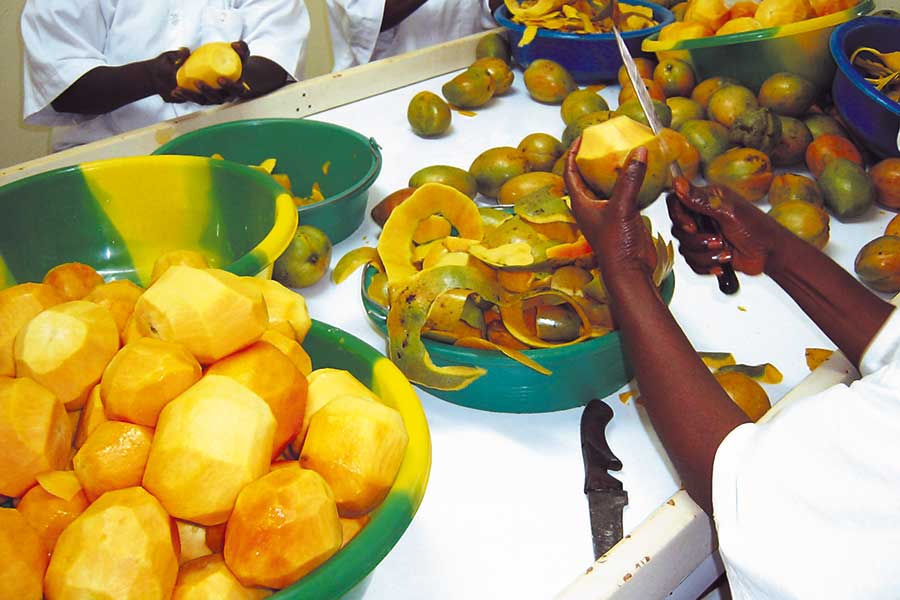
Living standards of many people have considerably improved through selling fair trade mangos. Both, fresh and dried mangos, notably in organic quality, have turned out to be an important source of income.


HAND IN HAND products
From a self-help project to professional organic production

Carefully dried in special ovens
Mango trees in the West of Burkina Faso, around the city of Bobo Dioulasso, are part of the characteristic landscape. The small farmers cultivate them according to organic cultivation methods. Women are particularly responsible for the drying of the fruits. They are organized in so-called “drier groups”.
The very much appreciated mango variety Brooks is harvested from June until August. The women from the drier groups buy the fresh mangos directly from the 76 farmers. The mango quality is tested when the fruits are purchased. In the drying facilities, the mangos are peeled, cut into pieces and carefully dried in special ovens.

Micro credits through the HAND IN HAND fund
In the years 2004 and 2008 Rapunzel made it possible with thel HAND IN HAND fund (today: HAND IN HAND donation) to establish micro credit funds for the women from the mango dryer group AVOH (Association of widows and orphans of Houet) and GUAMPRI in Burkina Faso. Altogether, Rapunzel domated 15,000 €. The aim is to combat poverty of the poor population by providing individual micro credits to women. The micro credits finance communal activities such as drying of vegetables or the production of juices for the local market. The micro credits secure the livelihood of the people after the three-month mango season.
Furthermore, the women can take out micro credits for activities such as breeding sheep, goat farming or gardening.

Mango – one of the most popular cultivated plants
Cultivated mango trees are cut at a height of about 10 to 20 meters. 12 to 15 kg fresh mangos are needed for 1 kg of dried mangos. Originally, the mango tree was endemic to Northeast India from where it was brought to Europe in the 16th century from Portuguese seafarers.
Today, mangos are grown in many parts of the world are the third most cultivated tropical fruits after bananas and oranges thanks to their high content of vitamins (mainly vitamin A) and minerals.
In Burkina Faso, mangos are particularly important in the Western part of the country where fresh and dried mangos, especially in organic quality, have become an important source of income.
